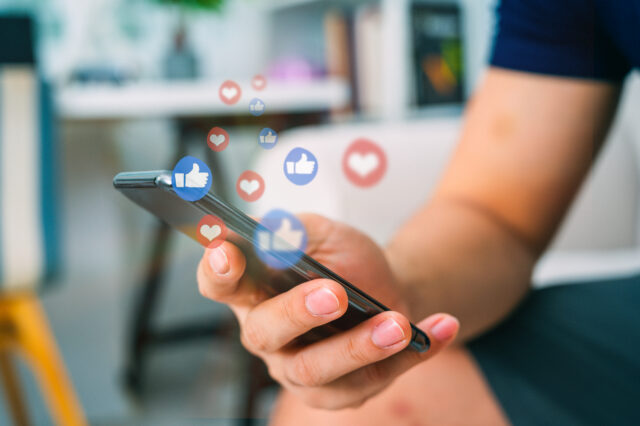Social Media Overload: Focusing on the Positive
People still use social networks with droves, starting off each day with newly sharpened swords ready to take on their would-be enemies. What purpose is served by this behavior? Is there anything positive that comes from social media?

There was a time where I would log on to my Facebook account, read about three or four of the latest posts from my online friends, and find myself angrily shutting down my computer. It wasn’t just that these posts didn’t jive with my own personal beliefs about the way the world ought to be. It was the venom that so many people used when expressing themselves. Finally, there came a day when I decided that my own well-being was worth more to me than Facebook, and I decided to unplug without looking back.
People still use social networks with droves, starting off each day with newly sharpened swords ready to take on their would-be enemies. What purpose is served by this behavior? Is there anything positive that comes from social media?
A positive spin
The answer is yes, social media provides many different positive aspects that can outweigh some of the hostility.
- Access to resources: In 2018, researchers from the University of Sheffield published a study that investigated social media and adolescents. Their investigation revealed that not only does social media use among teenagers improve mental health, but also that these users often use social media specifically for the purpose of finding mental health resources and gathering information about well-being. Qualitative analysis included that online forums can provide a mechanism to discuss topics that might be too uncomfortable to discuss in person.
- Wealth of knowledge: Social media also provides a marketplace for information to which that we might never otherwise be exposed. We might stumble across links for healthy lifestyle choices, wellness opportunities or political discourse that pique our interest and provide an avenue for self-discovery and improvement.
- Place for connection: Social media also serves to keep us connected to each other, albeit virtually, and maintain relationships that might otherwise deteriorate and disappear. It allows us the opportunity to reconnect with distant friends and relatives, and provides a mechanism to start bridging the divide with people we lost connections with in the past.
Use technology to your advantage
As with most platforms and devices, social media accounts have settings and tools for users to modify what they do or do not want to see in their news feed. If you’re feeling overwhelmed with negative content on your feeds, consider making the following adjustments to your settings:
- Turn off or edit your notifications. Each notification on Facebook has three dots by it, wherein users can modify their notifications for certain things (page updates, the comments and likes you are getting, posts you’re tagged in).
- Be cautious with clickbait. Juicy headlines may encourage you to click on an article, but make sure you read the full article before making assumptions or believing the words are true. Make sure your news is coming from reputable sources, like medical journals or authors with prestigious credentials, or understand that most articles these days are opinion pieces.
- Reevaluate your apps. If you find yourself mindlessly scrolling on Facebook or Twitter, but feel like the content is not helping you, consider deleting the app and only logging on a computer browser should you need specific information or updates from those sources.
- Seek out positive content. There are many fun and uplifting social accounts that can take your mind off negative news in the world. Instagram is a great platform to search. You can focus on a positive image vs. reading text and articles that may just be opinion-based.
The final verdict on social media and its effect on mental health and behavior is far from settled, and I suspect that anytime there is political and social unrest, social media will be an outlet for the negative aspects of our psyches. However, like so many other institutions in our lives, I believe that social media is what we make of it. If we utilize this powerful tool for positive growth, civil discourse and building bridges, then social media can be a powerful force for improvement. It is up to us, all of us, to decide how we will wield the power inherent in Facebook, Twitter, Instagram and any other platforms.
Consider these additional tips to find peace in this chaotic world. If you have specific health questions or concerns, make sure to consult with your primary care physician or request an appointment with a specialist from UF Health Psychiatry. UF Health offers secure, convenient Virtual Visits to connect with your provider.
David J Chesire PhD
Non UF Employee Email: david.chesire@jax.ufl.edu